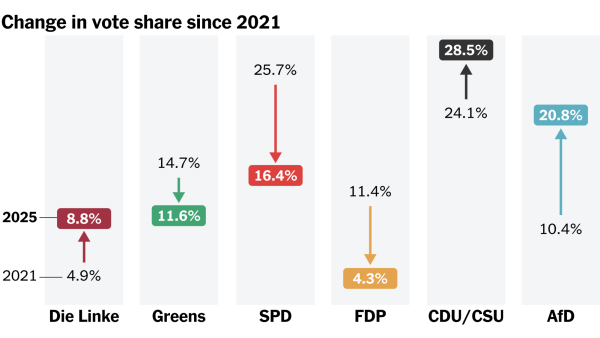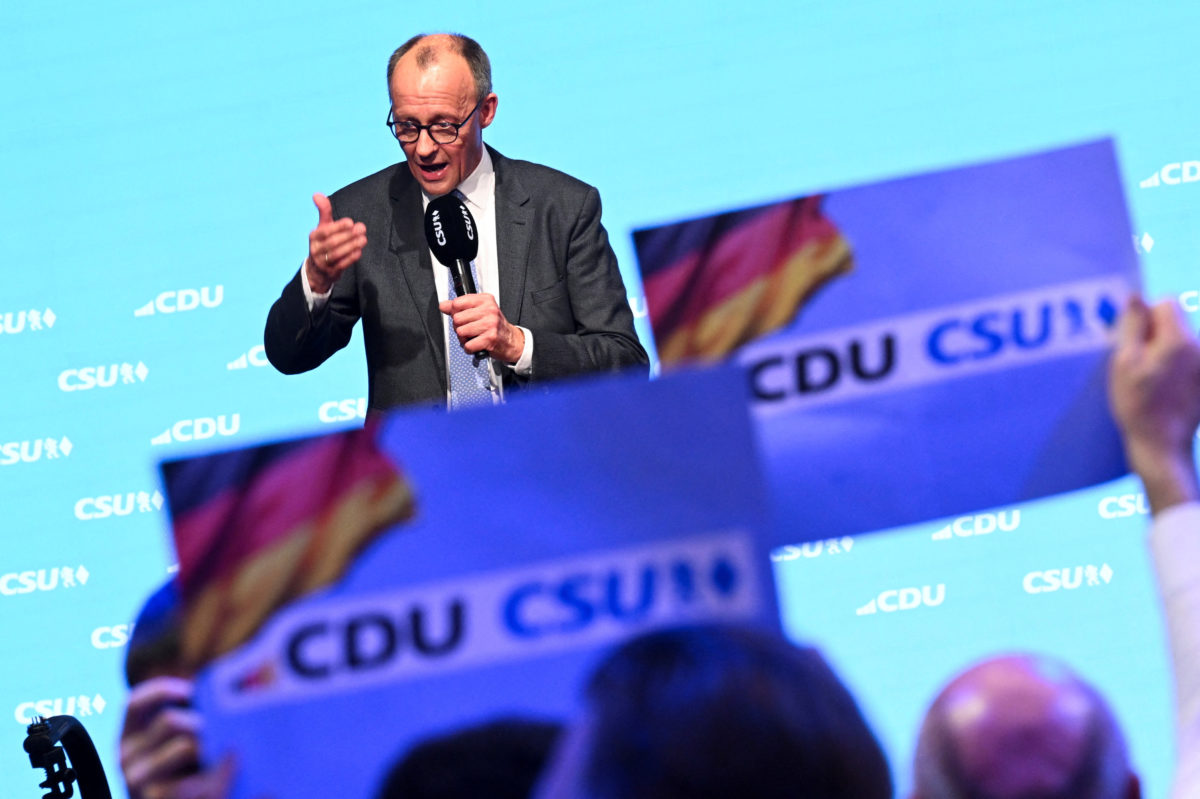On May 6, German politician Fredrich Merz was elected as the tenth post-war Chancellor of Germany, after a historic gridlock that had long prevented Merz’s chances at being elected.
Prior to his election as Chancellor of Germany, Merz was the leader of the Christian Democratic Union (CDU), Germany’s major center-right conservative party and led the CDU-CSU, a conservative parliamentary group, as the leader of the opposition in the Bundestag. Before entering into mainstream politics, Merz was a corporate lawyer and judge.
As a politician, Merz is known for his pro-NATO, pro-Atlanticist, and pro-European views, advocating for a hawkish position that would see more military intervention from Germany in the Ukraine conflict, as well as fostering closer relations in both international relations and matters of defense with the United States. In terms of domestic policy, Merz is known for his hardline-conservative positions on issues related to the economy and immigration, such as rejecting asylum for refugees and migrants and deregulating the German economy to a more free-market orientation.
In the 2025 German federal election, Merz was the candidate of the CDU, running against Alice Weidel, the candidate for Germany’s right wing Alternative for Germany (AfD) party and then-Chancellor Olaf Scholz of Germany’s center-left Social Democratic Party. According to Politico EU, the CDU received a majority of the national vote at around 28.5% and secured a majority in the Bundestag.
In the first parliamentary vote, Merz suffered a historic defeat and was just six votes behind in gathering the required 316 votes to secure a majority in the Bundestag. According to The New York Times, the coalition of parties that supported Merz, which included the CDU, CSU, and the Social Democrats, consisted of around 328 members. Although the votes were conducted through a secret ballot, it is strongly implied that several members of the coalition dissented from the party position. Merz’s defeat in the first parliamentary vote was the first time in German history that a chancellor failed to win the initial voting round.
Later in the afternoon, the Bundestag conducted a second ballot vote, in which Merz received the required 316 votes and was elected as Chancellor of Germany. As the new Chancellor of Germany, Merz faces serious challenges and tasks, primarily with foreign policy and the changing relationship with the United States under the Trump Administration. President Trump’s “America First” foreign policy and his threats to diminish the role of the United States in the national security of Europe endanger the long-lasting defense relationship between the United States and Germany that began during the Cold War. Merz, who has in the past been supportive of strong relations between the United States and Germany, has criticized the Trump administration, underlining the threat of “autocratic behavior at the top of the state” in the U.S, referring to President Trump. Merz has also criticized President Trump’s statements that appear to blame Ukraine for the Russo-Ukrainian War. In response to what seems to be the U.S withdrawing from European affairs, Merz has affirmed the role of Germany in shaping European relations and foreign policy, further stating, “Within this Europe, Germany must play a leading role.”
Merz also faces significant domestic challenges, particularly from the AfD. In the recent elections, the AfD was nearly tied with Merz’s CDU and came second in the national vote at around 20.8% of all votes. The AfD is known in Germany as the main Eurosceptic and Anti-Migration party, following a growing trend of electoral success among Europe’s Right-Wing parties.  The party threatens to break the traditional center-left and right parties, and members of Merz’s CDU have debated on whether to cooperate with the party or effectively “quarantine” it. Tensions between the two right-leaning parties heightened as Germany’s Federal Office for the Protection of the Constitution declared the AfD as an “extremist” party on Friday. This action from the intelligence agency has appeared to vindicate criticism of the German government from notable politicians such as Vice President J.D Vance, who scorned Germany’s actions against far-right parties as “hypocritical” of the commitment to democracy.
The party threatens to break the traditional center-left and right parties, and members of Merz’s CDU have debated on whether to cooperate with the party or effectively “quarantine” it. Tensions between the two right-leaning parties heightened as Germany’s Federal Office for the Protection of the Constitution declared the AfD as an “extremist” party on Friday. This action from the intelligence agency has appeared to vindicate criticism of the German government from notable politicians such as Vice President J.D Vance, who scorned Germany’s actions against far-right parties as “hypocritical” of the commitment to democracy.
Merz’s election as Chancellor of Germany has several implications in areas related to migration, economic policy, and foreign policy. In his electoral campaign, Merz has pledged to change German policy toward migration and asylum seekers and has caused controversy by seemingly breaking down the “firewall” between the AfD and CDU with the acceptance of parliamentary votes from the right-wing party on issues such as immigration, albeit Merz rejects increasing cooperation with the party.








